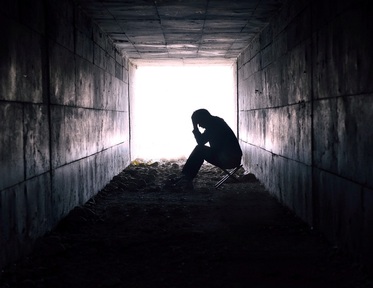Health secretary: 'We owe it to everyone to put mental and physical health on an equal footing'
Ministers have agreed to work towards parity between mental health and physical health at the first ever Global Ministerial Mental Health Summit.

Health and Social Care Secretary, Matt Hancock, announced the government’s ambition to put mental health on an equal footing to physical health, saying “for too long we have collectively failed to grasp the true magnitude of the problem”.
The Duke and Duchess of Cambridge, who spearheaded the Heads Together initiative, also joined ministers and delegates from more than 50 countries at the two-day summit in London.
Mr Hancock said: “It is shocking that one in four people in the world will be affected by mental ill-health at some point in their lives and around 450 million people are currently living with a diagnosed mental ill-health condition.
“We owe it to everyone to put mental and physical health on an equal footing, to try and eradicate the apathy towards mental health once and for all. I urge policy-makers and leaders to put mental health at the front of their minds.”
He added: “The commitment and leadership of the Duke and Duchess of Cambridge on tackling the stigma of mental health and ending prejudice and discrimination is an inspiration to us all and a reflection of how much Britain has changed as a society that we can now talk about this issue openly.”
Tipping point
Experts, policy-makers and people with lived experience of mental health witnessed Time to Change’s launch of ‘It’s time to talk (about mental health)’ at the summit.
The short film, led by Rethink Mental Illness in partnership with Mind, urges people to ‘ask twice’, as new research suggests that when asked, over three quarters of us would tell friends and family we are ‘fine’, even if struggling with a mental health problem.
Jo Loughran, director of Time to Change, added: “We all hear it dozens of times a day: ‘How are you?’ ‘Fine thanks, how are you?’ Our research shows that, as a nation, we find it hard to answer honestly. This could mean someone close to you is struggling with their mental health – they might just be waiting for your cue to talk about it. Asking twice is a simple, effective way to show our friends and family members that we are asking for real; that we are ready to listen, whether that’s now or whenever they’re ready.”
Sue Baker, director of Time to Change, added: “After generations of mental health being the poor relation to physical health, many of us hope that this first ever global mental health summit will be a tipping point that prioritises more action on mental health. We’ve made major progress on mental health stigma in England and hope the summit acts as a springboard for change across all countries and cultures, so that there is no shame attached to mental health anywhere in the world.”
Government to increase NHS’ mental health workforce by 21,000 by 2021 
Average global spend on mental health is just 2.8 per cent of government health spending. In the UK that figure is around 9.5 per cent.
Latest research shows that people in the UK with mental health problems are waiting so long for NHS care they are ending up jobless, divorced or in financial distress because of the delay.
A Royal College of Psychiatrists survey found that some mental health patients waited up to 13 years to get the treatment they needed, and more than a third of those who faced a wait to access specialist help saw their mental health deteriorate during that time.
“It is a scandal that patients are waiting so long for treatment”, said Professor Wendy Burn, the college’s president. “The failure to give people with mental illnesses the prompt help they need is ruining their lives.”
The UK has spent around £12bn this year on mental health services. The government has pledged to increase the NHS’ mental health workforce by 21,000 by 2021 and expand mental health provision to a million more people within the next two years.
Sarah Hughes, chief executive of the Centre for Mental Health, said: “Long waits for mental health support can be both costly and distressing for people. From childhood to later life, it is vital that mental health support is on hand when people need it.”
The Global Ministerial Mental Health Summit is hosted by the UK government in partnership with the Organisation for Economic Co-operation and Development (OECD), with support from the World Health Organization (WHO).
For advice on mental health go to: www.mind.org.uk
Latest News
 29-Jul-24
Dementia Bus gives carehome.co.uk staff insight into life with dementia
29-Jul-24
Dementia Bus gives carehome.co.uk staff insight into life with dementia
 01-Mar-24
Find out the top care homes in 2024
01-Mar-24
Find out the top care homes in 2024
 21-Mar-23
UK's top care homes in 2023 revealed
21-Mar-23
UK's top care homes in 2023 revealed
 03-Jan-23
carehome.co.uk launches free care helpline
03-Jan-23
carehome.co.uk launches free care helpline
 13-Dec-22
5 mins with Emily Whitehurst, chief operating officer for Constantia Healthcare
13-Dec-22
5 mins with Emily Whitehurst, chief operating officer for Constantia Healthcare